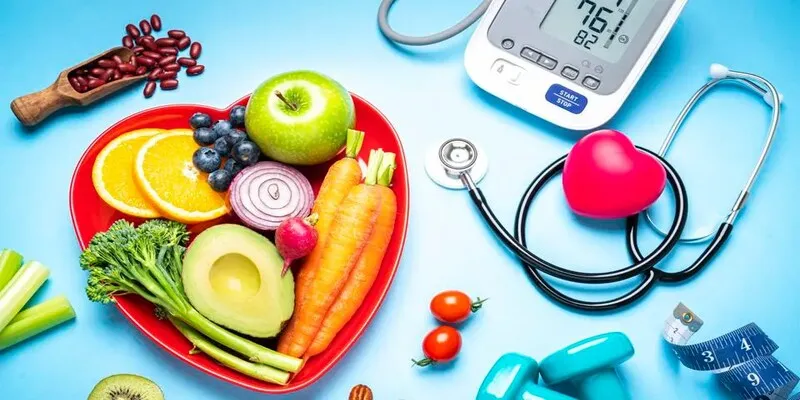How to Improve Body Composition, Based on Science
Improving body composition, which involves managing the balance of fat and muscle, is more than just losing weight. Body composition refers to the proportion of muscle, fat, water, and bones in your body. Adjusting these components can enhance overall health and physical appearance. Achieving optimal body composition requires more than just weight loss; it involves specific exercises, a balanced diet, and lifestyle changes.
This guide provides practical, science-backed advice for muscle building and fat reduction, focusing on long-term health benefits. Learn how to naturally and sustainably improve body composition with these techniques.

Understanding Body Composition and Why It Matters
Body composition is distinct from body weight. It reveals the percentages of muscle, fat, and other essential tissues, unlike the number on a scale. Generally, a higher proportion of muscle relative to fat is linked to better health. Excess fat, particularly around the organs, increases the risk of chronic diseases such as diabetes and heart disease.
Improving body composition helps reduce these risks, enhances physical performance, and boosts metabolism. Understanding your body type allows you to set realistic goals. While losing weight might be one objective, preserving or increasing muscle mass is crucial. Muscle mass boosts strength, fuels metabolic activity at rest, and aids in calorie burning. Understanding body composition offers a clearer view of health than weight alone.
The Role of Nutrition in Improving Body Composition
Nutrition is fundamental in altering body composition. To lose weight and gain muscle, consume adequate protein, fats, and carbohydrates. Protein is essential for muscle growth and repair. Consuming 1.6 to 2.2 grams of protein per kilogram of body weight daily helps maintain muscle mass while reducing fat.
Healthy fats, like those from avocados, nuts, and olive oil, help balance hormones, which is crucial for muscle growth. Carbohydrates provide the energy needed for workouts. Consuming complex carbohydrates, such as whole grains and vegetables, ensures consistent energy and helps maintain strength during physical activities. An effective diet prioritizes nutrient-dense foods to support muscle growth and fat loss.
Strength Training for Optimal Muscle Growth and Fat Loss
Strength training is vital for improving body composition. Lifting weights builds muscle mass, boosting metabolism and increasing calorie burn, even at rest. The most effective strength training programs include compound movements like squats, deadlifts, and bench presses. These exercises target multiple muscle groups simultaneously, maximizing the workout’s effectiveness.
For optimal results, aim to work all major muscle groups two to three times a week. Studies indicate that strength training not only builds muscle but also preserves it during fat loss, which is crucial for maintaining metabolism and sustaining fat loss over time.
High-Intensity Interval Training (HIIT) for Fat Loss
High-intensity interval training (HIIT) is an excellent method for reducing body fat. HIIT involves short bursts of intense activity, such as sprinting, alternated with lower-intensity recovery periods. This type of exercise burns more calories in less time compared to steady-state cardio exercises like running. Studies show that HIIT can enhance both aerobic and anaerobic fitness, supporting endurance and muscle power.
HIIT also increases excess post-exercise oxygen consumption (EPOC), meaning the body continues to burn calories at a higher rate after the workout. Incorporating one to two HIIT sessions per week can boost fat reduction without sacrificing muscle. However, balance is key, as excessive HIIT can lead to fatigue and increase injury risk.

Importance of Sleep and Recovery in Body Composition
Sleep and recovery are often overlooked but are critical to enhancing body composition. Quality sleep supports mental health, hormone regulation, and muscle recovery. Research shows that those who sleep less than seven hours per night may struggle to maintain muscle and lose fat. Sleep regulates hormones such as cortisol, which, in excess, can promote fat storage and muscle breakdown.
During deep sleep, the body releases growth hormone, aiding in muscle repair and fat loss. Maintaining a consistent sleep schedule of 7–9 hours supports these processes. Recovery involves more than just sleep; it also includes taking rest days between workouts and incorporating foam rolling or stretching to prevent injury.
Hydration and Its Role in Body Composition
Proper hydration significantly affects body composition. It is essential for digestion, nutrient absorption, and muscle recovery. Dehydration can impair performance in strength and endurance workouts, reducing effectiveness. Water also aids in breaking down fat; without adequate hydration, fat-loss processes slow down.
Men should aim to drink about 3 liters of water daily to support muscle maintenance and fat metabolism, while women should target 2.2 liters, adjusting for exercise level and climate. Additionally, hydration influences hunger signals, as thirst is often mistaken for hunger, leading to overeating.
Tracking Progress and Staying Consistent
Changing body composition requires tracking progress. Using body fat percentage measurements, progress photos, or strength records provides a more accurate picture than relying solely on a scale. Since muscle occupies less space but weighs more than fat, muscle gain and fat loss may not always reflect on the scale. Photos and measurements allow you to see visible changes even if the scale remains unchanged.
Consistency is crucial for achieving long-term results. Gradual, sustainable changes in lifestyle, nutrition, and exercise are more effective than drastic ones. Setting realistic, short-term goals, such as improving endurance or strength, can help maintain motivation. Studies show that slow, steady habits lead to lasting changes in body composition.
Conclusion:
Transforming body composition is a journey that involves balanced nutrition, targeted exercise, and adequate recovery. A science-backed approach emphasizes muscle-building through strength training and fat loss with HIIT. Nutrition plays a critical role, with a diet rich in protein, complex carbohydrates, and healthy fats helping you achieve your goals. Completing the picture are hydration, sleep, and recovery, supporting a healthier, sustainable path to body composition changes. These scientifically supported strategies can help you achieve and maintain desired results for long-term health and vitality with a consistent and patient approach.










